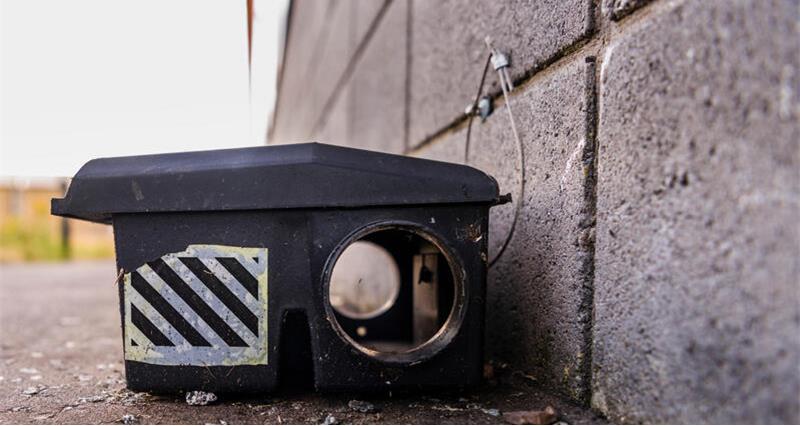Access for farmers to professional rodenticides is overseen by the UK Rodenticide Stewardship Scheme, run by the CRRU (Campaign for Responsible Rodenticide Use).
Over the next few months, the CRRU is implementing changes to the way professional rodenticides can be accessed and used.
CRRU (Campaign for Responsible Rodenticide Use)
The is a stewardship group which oversees rodenticide stewardship by farmers, gamekeepers and professional pest controllers, provides governance of the supply chain and monitors compliance with the regime, as well as environmental impacts.
The CRRU was set up in 2015 to assure the HSE (Health and Safety Executive тАУ the UK Government body responsible for the regulation of rodenticides) that professional rodenticides can continue to be used safely. ╗╩╝╥╗к╚╦sits on CRRUтАЩs wider stakeholder group.
Under CRRUтАЩs UK Rodenticide Stewardship Scheme, only those who are able to show they have fulfilled CRRU requirements are able to purchase and use professional rodenticides.
One of CRRUтАЩs main targets, as agreed with the organisationтАЩs Government Oversight Group, is to reduce the levels of SGAR (Second Generation Anticoagulant Rodenticide) residues in non-target wildlife. Barn owls are the representative species used to measure residues in non-target wildlife, with the livers of dead barn owls being routinely tested for SGAR residues. Residues are found in around 80% of tested barn owls, a figure that has remained static for a number of years.
Since 2015, the CRRU has implemented a number of changes to reduce the impact of rodenticides on non-target wildlife, including launching the , which details a range of effective methods for rodent management through an IPM approach.
In order to ensure high animal welfare and food safety standards, all users of professional rodenticides must follow the to ensure effective rodent control while minimising environmental impacts.
Visit the to find out more about the work they do.
Current requirements for accessing professional rodenticides
*Valid up to 31 December 2025
Under the CRRU UK Rodenticide Stewardship Scheme, you must be able to show proof of competence in order to purchase or use professional rodenticides. Currently, proof of competence can be evidence through either:
- holding a valid certificate from a
- membership of a CRRU approved farm assurance scheme.
Alternative rodent control options are:
- employ a certified pest management professional
- purchase and use amateur rodenticide products.
Demonstrating proof of competence
For farmers who are members of a CRRU approved farm assurance scheme, membership documents presented at point of sale will be regarded as proof of competence. There are currently 17 CRRU approved farm assurance schemes. Read the full list of approved schemes.
For an initial purchase with a supplier, a declaration form and photo ID will also be required. There are different forms for those certified through a and those through a . Both are downloadable from the .
Farmers who are not members of an approved scheme, but who wish to purchase and use professional rodenticides themselves, will need to have a certificate showing they have completed and passed a CRRU approved training course. There are five courses recommended for farmers (listed below), or you can view the .
- ╠¤
Training can be online, or classroom based. There is also an option to take an exam without training if you feel you already have the knowledge required.
For more information, visit: .
Jump further down the page to find out what to do if you've previously completed a training course.
Sign in if youтАЩre already a member
